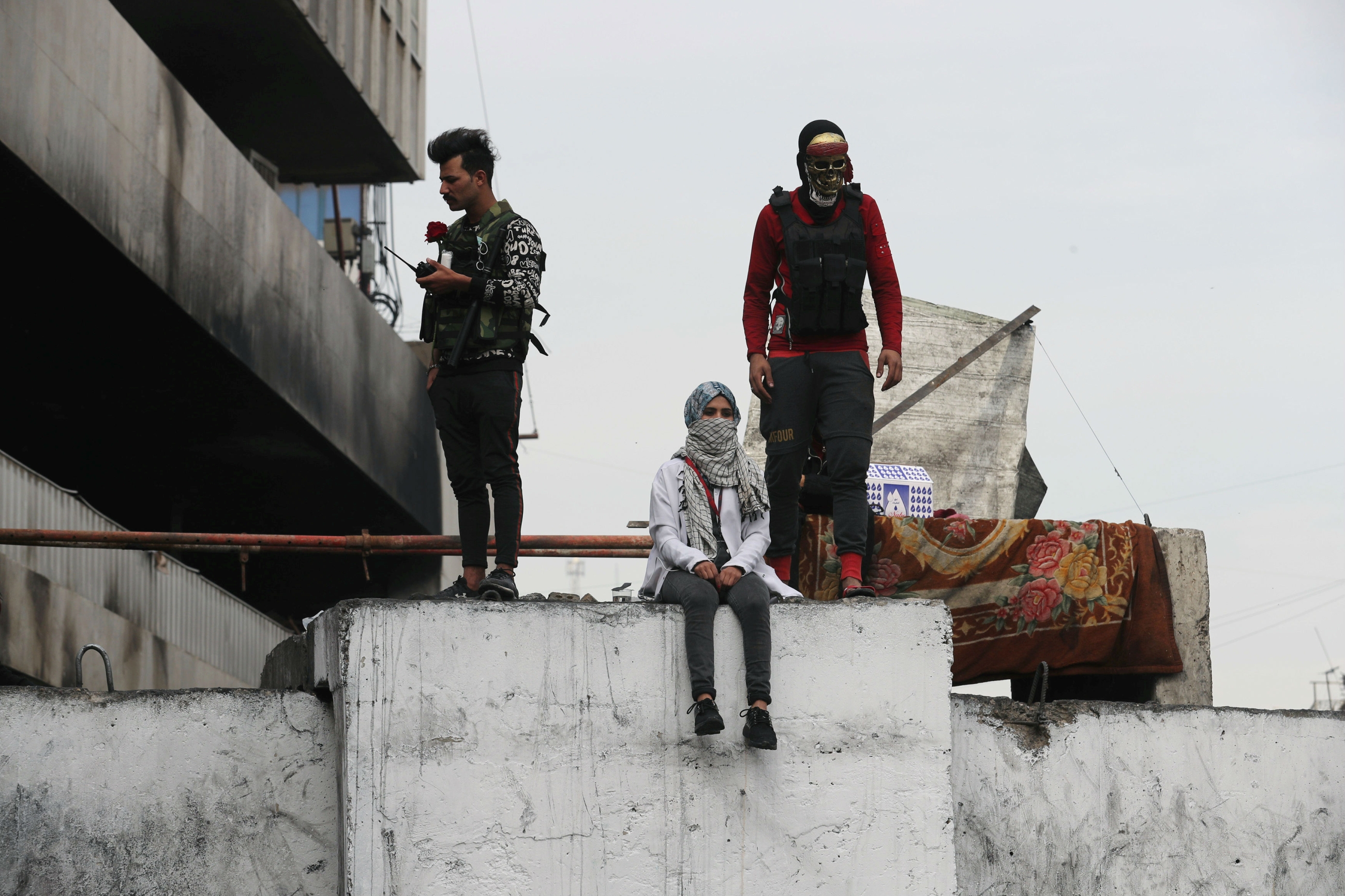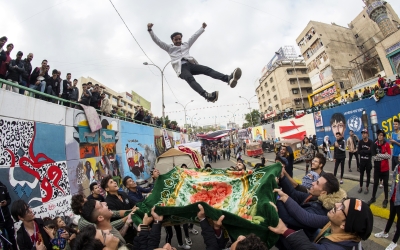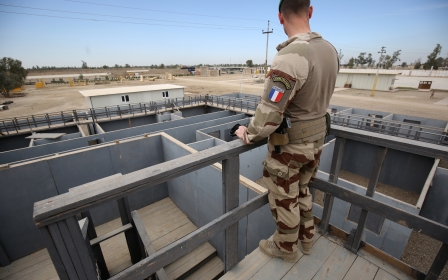Fears grow in Iraq over kidnapping campaign targeting activists

Protesters in Iraq are becoming increasingly fearful after the abduction and sometimes subsequent murder of a number of activists and journalists.
There have been sporadic kidnappings by unknown groups since the protests began on 1 October, but they have reached a peak in the last week with the disappearance of a number of prominent activists.
In Baghdad, environmental activist Salman Khairallah and his friend Omar Kazem Ali, a civilian activist and human rights defender, disappeared after leaving Tahrir Square around midday on 11 December. The two activists did not answer their friends' and families’ calls.
Middle East Eye spoke with their friends but they refused to comment, fearing for their own safety.
The families of the abducted activists have been demanding the authorities help them reveal the kidnappers’ identities or any information that might help them reach the victims.
Stay informed with MEE's newsletters
Sign up to get the latest alerts, insights and analysis, starting with Turkey Unpacked
One young activist who was kidnapped agreed to speak to MEE on condition of anonymity.
“Immediately after we left Tahrir Square, we were riding in a minibus and a group of cars circled us and stopped us. They blindfolded us and asked us not to speak, and took our phones to prevent us from making or answering calls," he said.
“They were wearing the security forces' clothes, their cars were plated.”
He said the men took him to an unknown place, a building heaving with dozens of other protesters and activists.
"They took my phone and forcefully asked me to unlock it. They took all my personal videos, and threatened to post them on social media if I kept protesting," he recounted.
The activist said a man brought him a prayer mat with the face of former Iranian Supreme Leader Ruhollah Khomeini on it, and ordered him to pray. He said that based on their speech, the men belonged to Kata'ib Hezbollah, an Iranian-backed armed group in Iraq currently listed as a terrorist organisation by the US.
The men beat him and demanded to know who was funding the protesters.
“We did not receive any support from anyone. We fund everything from our own pockets," he told them.
'We heard screaming'
Zaid Al-Khafaji, a 22-year-old photographer, was abducted outside his home in Baghdad on 6 December and was only released on Thursday.
"Zaid knocked on the door at 4am. We heard screaming and shouting and when we opened the door, he was gone," a relative of Khafaji told MEE last week.
He said he had heard nothing from the authorities after Khafaji's abduction.
Eleven protesters from the southern city of Karbala who were also kidnapped at the weekend were released on Wednesday.
A number of others abducted, however, have later been found killed.
Activist Ali Najm al-Lami disappeared late on Tuesday after leaving Tahrir Square - his body was later found in the al-Shaab area.
His last Facebook post saw him demanding the continuation of peaceful protests.
Kidnappings have long been common with armed groups amid the sectarian violence in Iraq, killing tens of thousands in the 2000s.
Since the beginning of the protests over unemployment, corruption and poor services in early October, at least 460 people have been killed and 25,000 wounded, mostly protesters.
Middle East Eye delivers independent and unrivalled coverage and analysis of the Middle East, North Africa and beyond. To learn more about republishing this content and the associated fees, please fill out this form. More about MEE can be found here.






